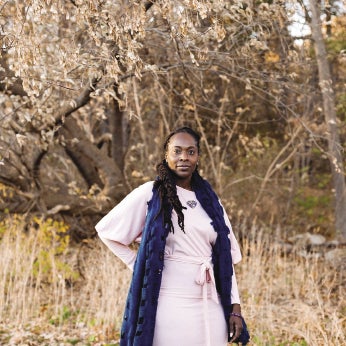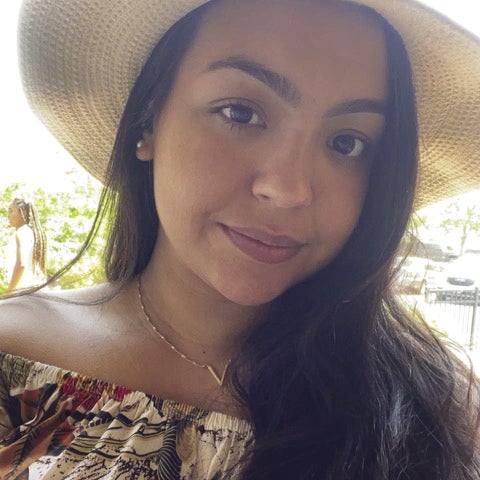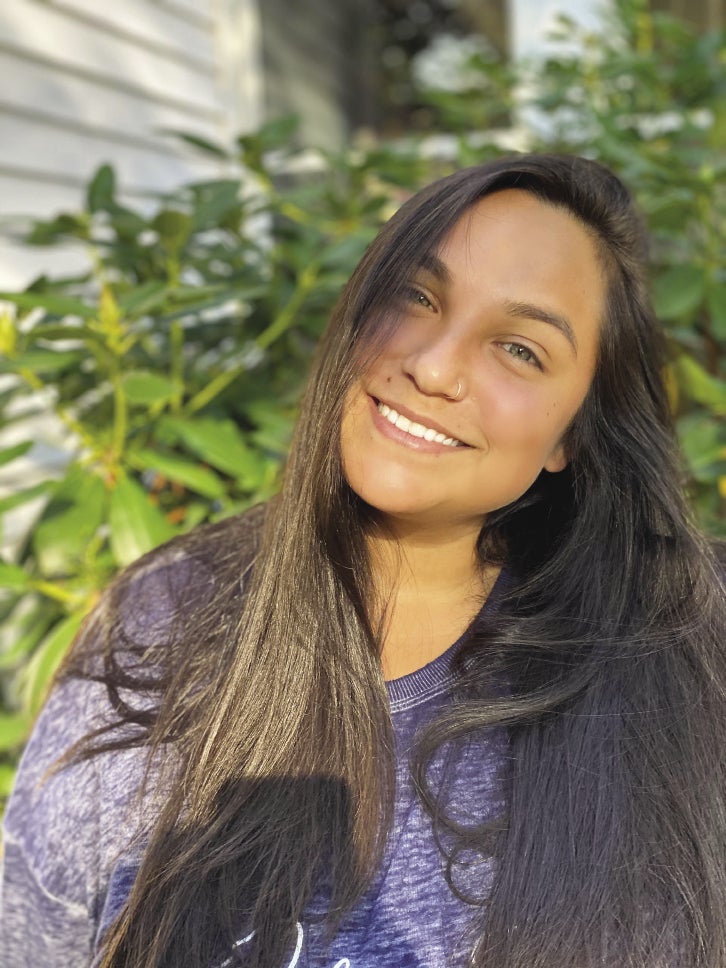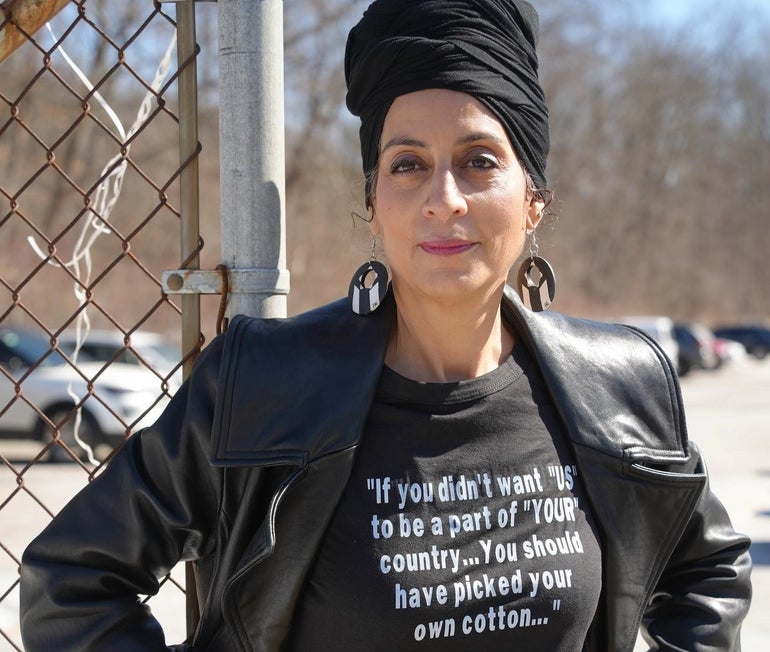Latin and Black American women can have access to the inner circles – that’s diversity – but once inside, they face unique challenges, aggressions, and are often isolated from conversations. That shows lack of inclusion.
Get Instant Access to This Article
Subscribe to Worcester Business Journal and get immediate access to all of our subscriber-only content and much more.
- Critical Central Massachusetts business news updated daily.
- Immediate access to all subscriber-only content on our website.
- Bi-weekly print or digital editions of our award-winning publication.
- Special bonus issues like the WBJ Book of Lists.
- Exclusive ticket prize draws for our in-person events.
Click here to purchase a paywall bypass link for this article.
As a Worcester city councilor for more than 10 years, lasting through various City Council cohorts, Sarai Rivera understands the struggles faced by Latin and Black American women when they finally are allowed entry into inner circles of power.
“As the only person of color on the city council for years prior to our current cohort, I have been the figure that is often portrayed in a stereotypical light and often criticized for being of Afro Latina descent despite my numerous degrees,” said Rivera.
Rivera is proof that obtaining access to an inner circle often designated for the white male comes at a cost as accomplishing degrees in higher education, public policy, and community leadership is not enough because there still remains the issue of ethnic differences.
“In meetings, I have heard the mumbles of individuals state ‘I can’t wait for the Latina in her to come out,’ and I have had to be conscious of my hairstyles, my hand gestures, and my ability to remain calm despite the situation or insults received, because at the end of the day, the label ‘Angry Black Woman’ is one that is easily thrown around,” Rivera said.
When discussing what it takes to get ahead professionally, it is evidently impossible to avoid the vast differences in perspective and experiences from the white men and Latin and Black American women. The notion of simply showing up to meetings is enough to propel the status of your accomplishments is nothing more than the usual conversation told to women of color in a daily and counterproductive manner, sparking feelings of guilt and providing a demeaning sense of superficial support.
It is the old, “Pull yourself up by your bootstraps'' rhetoric derived from an 1800s physics book showing the impossibility of a man lifting himself by his own bootstrap, which evolved into a phrase describing how everyone, despite their socioeconomic beginnings, should accomplish the same advancements afforded to all society.
The fight for equality for women is a discussion some feel is over-explained and oversensitized, often viewed as a prelude to a victimhood mindset. The discussion remains unprioritized, especially through the lens of the Latin and Black American woman.
Rivera said being part of an inner circle means fitting the ideas of a model person who can obtain perfection and fit into the mold the inner circle is willing to tolerate, she said. Diversity and inclusion are not one of the same. They are not terms that can be used interchangeably as their impacts hold different weights. Latin and Black American women can have access to the inner circles – that’s diversity – but once inside, they face unique challenges, aggressions, and are often isolated from conversations. That shows lack of inclusion, Rivera said.
“It is not simply about showing up but about showing up time and time again and about having to prove yourself over and over,” she said.
In a study conducted by the Pew Research Center, women increasingly outpace men in college graduation and enrollment rates. According to the National Student Clearinghouse Research Center, women accounted for nearly 60% of all college students by the end of the 2020-2021 academic year. In addition, among Black students, women earned 64.1% of bachelor degrees, 71.5% of master degrees and 65.9% of doctoral, medical and dental degrees, according to the American Association of University Women.
In short, women are doing their part, especially Latin and Black American women. They are already showing up.
Fighting at every turn

“Just showing up has never worked and will never work when speaking about issues around inclusivity. I have shown up repeatedly, whether it is in the context of civic engagement in the City of Worcester or in my professional realm of work,” said Jennifer Julien Gaskin, founder and president of The Worcester Caribbean American Carnival Association. “Showing up means that they let me sit at the table, but does that mean that my voice is heard and that my inclusion is meaningful? Absolutely not. Inclusion requires intention and a willingness to hear, understand, and accept experiences that may not be your own.”
Every year, the Worcester Caribbean American Carnival Association, has to fill out the application to host its annual parade and must attend a number of meetings to present the Carnival.
“We receive a fight at every turn,” said Gaskin. “We have to explain and defend ourselves every time we show up. While we have made small progress over the years in some aspects, it still remains a difficult, expensive and exhausting process.”
The Carnival parade is one of the largest events in Worcester annually, and the city uses the event as a way to bolster its image as a diverse-and-inclusive space, she said.
“However, throughout the years, we have never received meaningful support from the city,” she said. “In ... Boston, Hartford, New York, and Toronto, members of the city administration, politicians, and local businesses are in full attendance and support the events. In Worcester, we have never received that support from the city.”
Gaskin said this lack of support runs contrary to city official’s participation in other events where the majority of the crowds tend to be white, such as the St. Patrick’s Day parade.
Feeling unwelcomed

“Worcester is a clique, and some of the insiders ... lead tables and conversations that stick to what is trendy in communities where gentrification is blooming,” said Vianna Mercedes, a former program manager for the City of Worcester. “You can show up all you want, but they won’t open the door; and when they do, you have to put so much emotional labor that it’s just not worth it.”
Latin and Black women can be in the room where it happens, but that does not equate to an even playing field once entry is approved, Mercedes said.
“City Manager [Edward] Augustus can claim that the world is run by those who show up, but unfortunately for those who work under him and those around him, the world in his eyes is really run by a white boys club that he often hand selects.” said Mercedes. “When I worked for the city, the request to continue to prove my value at work never stopped. Yet, when it came to recognition, including pay and credit for the performance, someone in his white boys club would receive that.
“In meetings of pay equity, I recall City Manager Ed Augustus saying, ‘Well, what more do they want? They already received a pay-equity adjustment,’” she said.
The pay-equity adjustment references a 15 cents per hour increase received after years of overworking and underpayment, Mercedes said.
“Point is, even when they claim there is no formal requirements to be a part of these spaces. If they cared about equity, even just a little, they could easily take a step back and intentionally create structures where those who have not historically been a part of these spaces feel welcomed and thrive, but that’s not what they really want,” she said.
Augustus declined to comment for this article.
Code switching

The notion of just showing up continues to prove itself to be nothing more than a phrase of false hope.
“When those inner circle spaces are not designed for us, we will always be met with hesitation,” said Maria Ravelli, an organizer for the food security nonprofit Worcester Community Fridges. “In my work as grassroots organizer, my goal is not to earn a seat at the table. My goal is to form meaningful connections within my community and work against all structural harm that is caused and perpetuated by people at that table.”
Even when she does meet with people in power, Ravelli said she rarely feels comfortable enough to bring her full identity to the table.
“To be in those spaces means I am dimming myself, code switching to make others feel comfortable and muting parts of my identity to fit in. Unfortunately, for many people of color, showing up in these spaces means showing up inauthentically,” she said.
As a community organizer of the Worcester Community Fridges, Ravelli has been left unanswered when prompted to reach out to her city for help from those in the inner circles.
“Though hesitant to accept city resources, we accepted the meeting with plans to advocate for a public trash solution in Main South. In our meeting with the city manager and a city councilor, we were given the run around and our calls were never returned after that. We showed up, we did the work, we were denied access,” she said.
“Congressman [Jim] McGovern has verbally expressed his support for the free fridge initiative. We invited him to come and see the work we are doing to address food insecurity so he can amplify local mutual aid networks as a sustainable method of food access. Our emails were never answered. This superficial support is a consistent theme in the city. I dropped a line and never got a response, funny how that works,” Ravelli said.
A spokesman for McGovern's office said the congressman is a strong supporter of the free fridge initiative, and he did eventually visit the project, despite a lapse in communication.
“His support is definitely not superficial, it is committed, longstanding, and deep,” said Matthew Bonaccorsi, communications director for McGovern.
The future of progress
Long-standing and substantial wealth disparities between families in different racial and ethic groups have changed little over the years, according to the 2019 Survey of Consumer Finances. White families have the highest level of both median and mean family wealth: $188,200 and $983,400, respectively. Black families’ median and mean wealth is less than 15% percent that of white families: $24,100 and $142,500, respectively. Hispanic families’ median and mean wealth is $36,100 and $165,500, respectively.
When having a discussion about diversity and inclusion, the discussion must reflect in the pay grades of the Latin and Black Women who have gained entry to the inner circles.
In a world where the top 1% percent, mostly represented by white males, is reaping the benefits of the bottom 99%, it is an incredible insult to tell Latin, Black, and other women of color they are simply not showing up for their parts in society. It is a term that has lost face value because showing up – time and time again – does not correlate to the future of progress, growth, diversity, or inclusivity.
“I am not here to infiltrate inner circles, I am here to abolish them,” Ravelli said.
Editor’s note: For this article, 10 people from historically marginalized groups were contacted about their experiences trying to get their voices heard within circles of power. The majority described situations similar to those of the four women quoted on the record, but declined to be identified out of fear of retribution in their careers.

